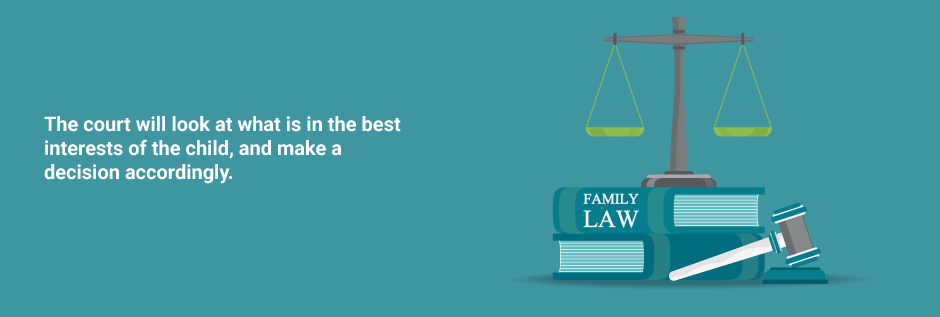Emotionally, issues involving children are perhaps the most difficult aspect of the entire divorce process. Divorce is draining and emotionally taxing on everyone involved; but this is especially true for children. The most hotly contested and emotionally charged aspect of a divorce is often who gets the kids and when. But custody and child support battles are not limited strictly to the divorce context. Increasingly, child custody and support orders are issued between cohabitants or non-married individuals. Below you can find some basic questions and answers and child custody and child support disputes. Keep in mind, this section is meant simply as a reference tool or a place to begin your legal research. In no way is the following intended as a substitute for legal counsel or for detailed discussions between you and your attorney. If you have questions about your specific case, please do not hesitate to contact us or to confer with your counsel.
1. Can I only fight for custody as part of a divorce?
If you and your spouse have children together, the child custody and support issues must be included as a part of the divorce proceedings in what is known as a “Suit Affecting the Parent Child Relationship,” or a SAPCR.

However, you do not have to be married to your child’s other parent to work out the legal issues of child custody and child support. If you need to have legal orders in place to determine who gets the children and when, or who pays child support and in what amount, then you need to file a SAPCR.
2. How does a Judge Decide Who Gets the Kids?

A Judge considers what is known as the “Holley Factors” or, in other words, the Best Interest Standard. The court usually takes into consideration what each parent wants, what the child wants (depending on the child’s age), which parent has been the primary caretaker, the parenting abilities of each parent, and whether or not there is a history of abuse or family violence. The court will look at what is in the best interests of the child, and make a decision accordingly.
3. Does Texas Favor the Children’s Mother over the Father?

No. In fact, the Texas Family Code §153.003 expressly forbids the court from making a determination based on a discriminatory factor such as gender. Again, the court must decide custody based on the best interests of the child. Gender is not factored in under the best interests standard.
4. What is the Difference Between Conservatorship and Possession?

Conservatorship is just another way of saying “legal custody”. If you are appointed a conservator of your child, you will have some kind of decision-making responsibilities. For example, you may have the right to make educational decisions for the child or even to direct his or her religious upbringing. In Texas, the default for child custody is for both parents to be appointed what is known as “Joint Managing Conservators”. Possession, on the other hand, refers to actual physical custody of a child, and access generally refers to visits with the child.
5. Our Visitation Schedule is Not Working. What can I do?

If your circumstances have changed since your Possession Order was entered, you may want to seek what is called a Modification. This essentially means that you are asking the court to modify or change your existing order. You and your attorney will have to show the court why the change is necessary and why is it in the children’s best interest. You and the child’s other parent may also decide together how you want to change your possession schedule. There is generally a provision in possession orders that allows the parents to decide on visitation schedules “by mutual agreement”. However, if the only thing you can agree on is that it isn’t working, you will likely have to go to court.
